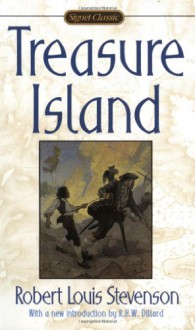

The more I read this, the more I regret not having read it when I was younger. Had I done so I might have enjoyed it more than I do now, as now it just feels so cliched. I know that's unfair given how many of those clichés are traceable to Stevenson's novel, but it doesn't make my sense of it any less acute.

This morning I had a talk with my son about the summer. Normally he would be attending summer school for the majority of his day, but as we don't live in normal times he is spending the summer indoors chafing under our recently imposed screen time limits because without them he would develop bedsores from long-term sofa occupation. Bad parent that I am, though, I've never taught him how to entertain himself, which is why he spent much of the past week complaining about having nothing to do with his summer of free time.
Hence our conversation. During it, I realized that one of the things he missed was the structure of school, with work punctuated by free time. Because of this, I decided to draw up some lessons to occupy his days. We're starting with Treasure Island, and as I've never read it until now I'm reading an online ebook copy while he listens to an audiobook version.
And this is how I discovered something else I don't like about ebooks, which is the absence of an ISBN for ebooks in the public domain. I decided to list the Signet Classics edition as I'm using an online teacher's guide to help me structure his assignment, but it still grates on me that I can't properly track my page progress.

by Robert Louis Stevenson
This is a tale written for a Polynesian audience, set in Hawaii, yes with Christian elements. Keawe is a mariner and decides to see the world beyond the islands. He books passage to San Francisco where he is impressed by all the fine houses. A man in one of the smaller houses invites him inside and offers to sell him a bottle with an imp from Hell inside who will grant all his wishes. What could go wrong?
It comes with certain conditions. The imp cannot grant long life and if the owner of the bottle dies while it is in his possession, he suffers the fires of Hell. The way to escape this is to sell the bottle to someone else, but it has to be sold for less than he paid for it. Naturally the price diminishes over time until it looks like Keawe is going to get stuck with the bottle and take the penalty.
The story struck me as familiar and I'm sure I read it or heard it in primary school. The fact that it's a classic author makes that likely. I knew how it would come out, but still enjoyed reading the convolutions of the plot and of course it was excellent writing. It also had a satisfying conclusion and possibly some moral lessons along the way.